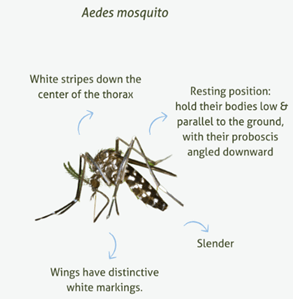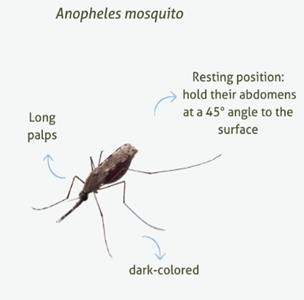19 August 2024 – Kampala, Uganda – World Mosquito Day is commemorated every year on the 20th of August, and it is an opportunity to raise awareness on the dangers posed by mosquito-borne diseases and the ongoing efforts to combat the world’s deadliest creature.
Both malaria and dengue are transmitted by female mosquitoes and cause severe illness in humans. Because of some similarities, the two diseases, and mosquito species, are often confused by patients and medical personnel.
“Dengue and malaria are two very different diseases caused by different pathogens and different mosquito species,” says Dr. Charles Guissou, co-Principal Investigator for Target Malaria Burkina Faso at the Institut de Recherche en Sciences de la Santé (IRSS). “Misdiagnosis between malaria and dengue is common and this can then contribute to unappropriate medical care.”
Malaria causes every year 200 million cases worldwide, leading to 600,000 deaths. Most of these deaths happen in Africa where children and pregnant women pay the highest price. The World Health Organisation (WHO) reported that, in 2022, Africa was home to 94% of malaria cases (233 million) and 95% (580 000) of malaria deaths. Children under five accounted for about 78% of all malaria deaths.
The global incidence of dengue has grown significantly in recent decades. Cases reported to WHO increased from 505,430 in 2000 to 6.5 million in 2023.
“At Target Malaria we are committed to contributing to an Africa free of malaria. We also want to be able to educate as many people as possible about the differences between the Anopheles mosquito, which transmits malaria, and the Aedes mosquito that carries the dengue virus. Malaria and dengue should be distinguished from each other so that adequate preventions and treatments can occur,” says Krystal Birungi, Field Entomology Coordinator for Target Malaria Uganda at the Uganda Virus Research Institute (UVRI)
Some of the noteworthy differences between dengue and malaria are below:
| Dengue | Malaria |
| A dengue-transmitting mosquito is called Aedes. | A malaria-transmitting mosquito is called Anopheles. |
| Dengue fever is caused by the dengue virus. | Malaria is caused by the Plasmodium parasite. |
| Aedes and Anopheles mosquitoes cannot mate with each other. | |
| Aedes mosquitoes are daytime biters and will usually bite in the early morning or late afternoon. | Anopheles mosquitoes are nighttime biters and will usually bite in the evening or later at night. |
| Aedes mosquitoes can live in, or near homes, or in neighbouring woods and prefer to live outdoors. They also tend to prefer urban areas. | Anopheles mosquitoes are generally attracted to dark, sheltered areas for resting during the daytime. They also tend to prefer rural areas, except for Anopheles stephensi which is spreading to more urban areas. |
| Aedes mosquitoes cannot transmit malaria and Anopheles mosquitoes cannot transmit dengue. | |
| The most common symptom of dengue is a high fever along with nausea, vomiting, rash, headache, and body aches. If symptoms occur, they usually begin 4-10 days after infection, and last for 2-7 days. | The most common early symptoms of malaria are fever, headache and chills. Symptoms usually start within 10-15 days of getting bitten by an infected mosquito. |


“The risk of potential infections is staggering. Approximately 3.9 billion people are at risk of dengue and 3.3 billion people of malaria infections. Innovative, sustainable solutions are needed in the fight against these diseases, especially in Africa. This is why African voices and expertise play a central role in the development and evaluation of these technologies,” adds Birungi.
Target Malaria is pioneering the use of gene drive, a natural genetic mechanism, to spread a genetic modification in malaria mosquitoes that biases the rate of inheritance and affects their ability to reproduce. This innovative approach holds the promise of being a sustainable and cost-effective method to reduce the population of malaria mosquitoes and ultimately halt malaria transmission.
More information on the differences between dengue and malaria can be found here.
ENDS
Distributed by African Media Agency for Target Malaria.
